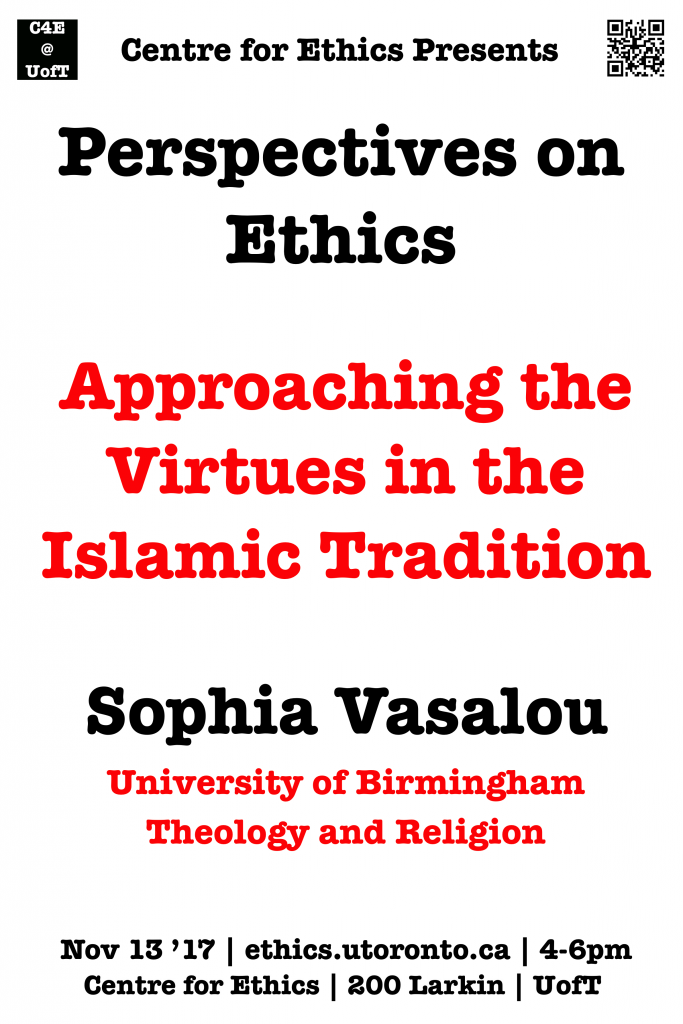 Approaching the Virtues in the Islamic Tradition
Approaching the Virtues in the Islamic TraditionOver the last few decades, there has been a dramatic surge of interest in moral character and the virtues among philosophers and psychologists. This has led to a fresh concern to explore the different ways in which the virtues have been approached historically, not only in philosophical but also in religious contexts. In this talk, my aim is to reflect on—and open a discussion of—the place of the virtues in the Islamic tradition. Within this tradition, there were several genres of ethical writing that we might identify as having hosted an engagement with the virtues. These include works of philosophical ethics, Sufi treatises, works of literature (adab), and mirrors for princes. Yet just how comfortably can we indeed identify the moral concepts that govern these works with the virtues, as these are often understood? How seriously do these works take what we would call character? Using the philosophical tradition as my foil—including the work of the well-known ethicist Abū ʿAlī Miskawayh—I will tackle these questions by focusing on the eminent 11th-century theologian Abū Ḥāmid al-Ghazālī. In the Revival of the Religious Sciences, al-Ghazālī drew on Sufi and philosophical ideas to articulate a vision of the ethical and spiritual life that pivoted on the realisation of certain kinds of valued internal states. In true eudaimonist style, these states are viewed as playing an indispensable role in the achievement of happiness. Yet is al-Ghazālī talking about the virtues? Just how robust is the concept of character at work in his thinking? And what does this have to tell us about the prospects of locating the virtues within the Islamic tradition more broadly?
Library of Arabic Literature Fellow
Department of Theology and Religion
University of Birmingham
Mon, Nov 13, 2017
04:00 PM - 05:00 PM
Centre for Ethics, University of Toronto
Rm 200, Larkin Building
